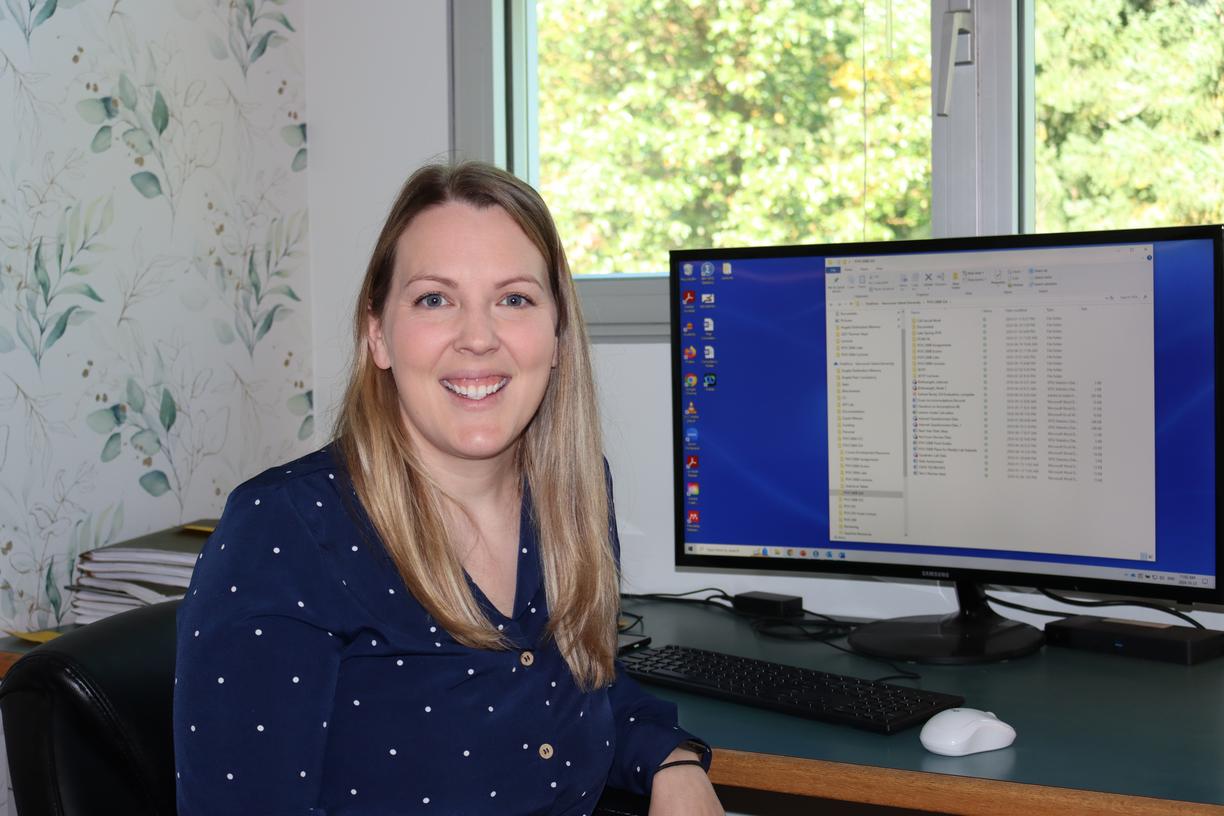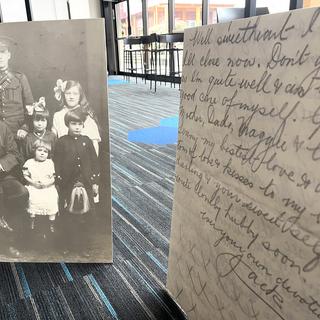VIU psychology professor Becky Earhart is researching what is known as ‘destination memory’ in children.
Photo: Vancouver Island University
The research has important implications for things like reliability of child witness testimony in the justice system.
Have you ever been in the middle of telling someone a story when you have the sneaking suspicion that this isn’t the first time you’ve told them this tale?
Vancouver Island University (VIU) Psychology Professor Dr. Becky Earhart is researching destination memory – how someone remembers who they told something to, and what information they shared.
“We’ve all had the experience of telling someone a story and realizing part way through it that we may have already told them this information,” said Earhart, the Director of VIU’s Developmental Forensic Psychology Lab. “We’re interested in finding out more about how this type of memory develops from childhood to adulthood and what factors influence how difficult it is to remember who you told something to.”
Earhart is trying to assess how well children can remember who they told something to, compared to adults, which has important implications for child witnesses in the legal system.
For example, "victims of child abuse who give testimony in court proceedings are often asked who they told about the abuse to assess the reliability of their prior disclosures,” she said. “Very little is known about how well children can answer questions about who they told something to.”
Earhart – who trains forensic interviewers who specialize in investigative interviews with child witnesses, and consults on legal cases involving child witness testimony – said her work will provide insight into how this skill develops in childhood, and what circumstances might make it more difficult for children to remember who they told something to.
Earhart and her group of student researchers have three studies in progress, each exploring different factors that might make it more difficult for someone to remember what they told someone else in a previous conversation. Participants are asked to have conversations with other people via video chat and then given a memory test that asks about who said what to whom in which conversations.
So far, Earhart is finding that participants are better at remembering who told them something, compared to remembering who they told something to.
“This is consistent with earlier studies of destination memory and we think this is happening because when you are listening to someone sharing information with you, you are focused on them and therefore better able to remember who told you that information,” she said. “When you’re sharing information with someone else, you would be more focused on your own internal processes – thinking about the answer to their question, what’s appropriate to share, how the person will react – and because you’re distracted by engaging in all of those social processes, you would be less likely to remember who you were talking to.”
Earhart said her research will help provide a better understanding of children’s memory development, and specifically memory for conversations, which has implications for how children learn through dialogue.
Her current research projects will continue until next summer. She was awarded a VIU Research Awards Committee Inquiry grant of $7,000 towards her work.
30-
MEDIA CONTACT:
Eric Zimmer, Communications Officer, Vancouver Island University
P: 250-618-7296 | E: Eric.Zimmer@viu.ca | X: @VIUniversity
The VIU community acknowledges and thanks the Snuneymuxw, Quw’utsun, Tla’amin, Snaw-naw-as and Qualicum First Nation on whose traditional lands we teach, learn, research, live and sha





